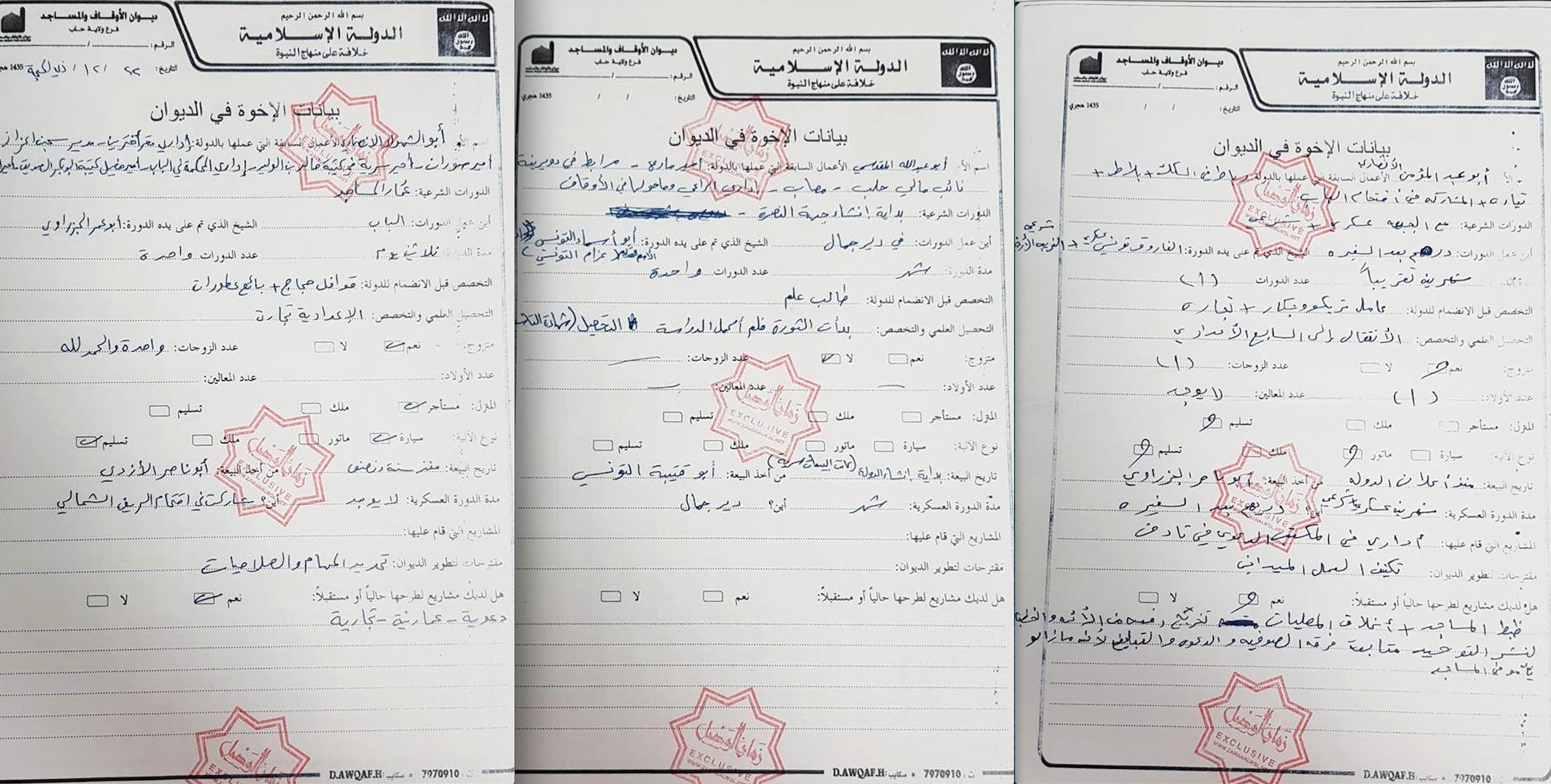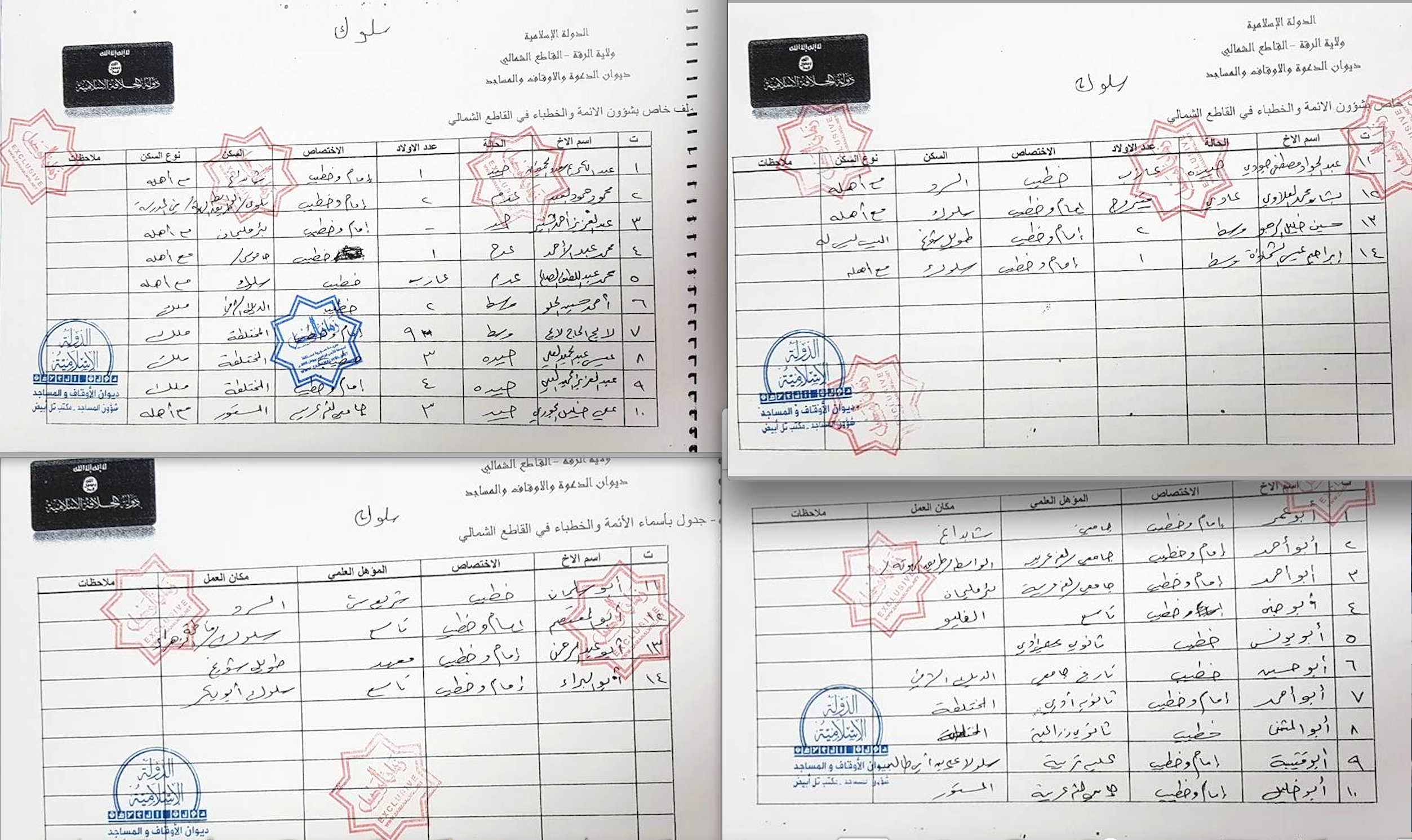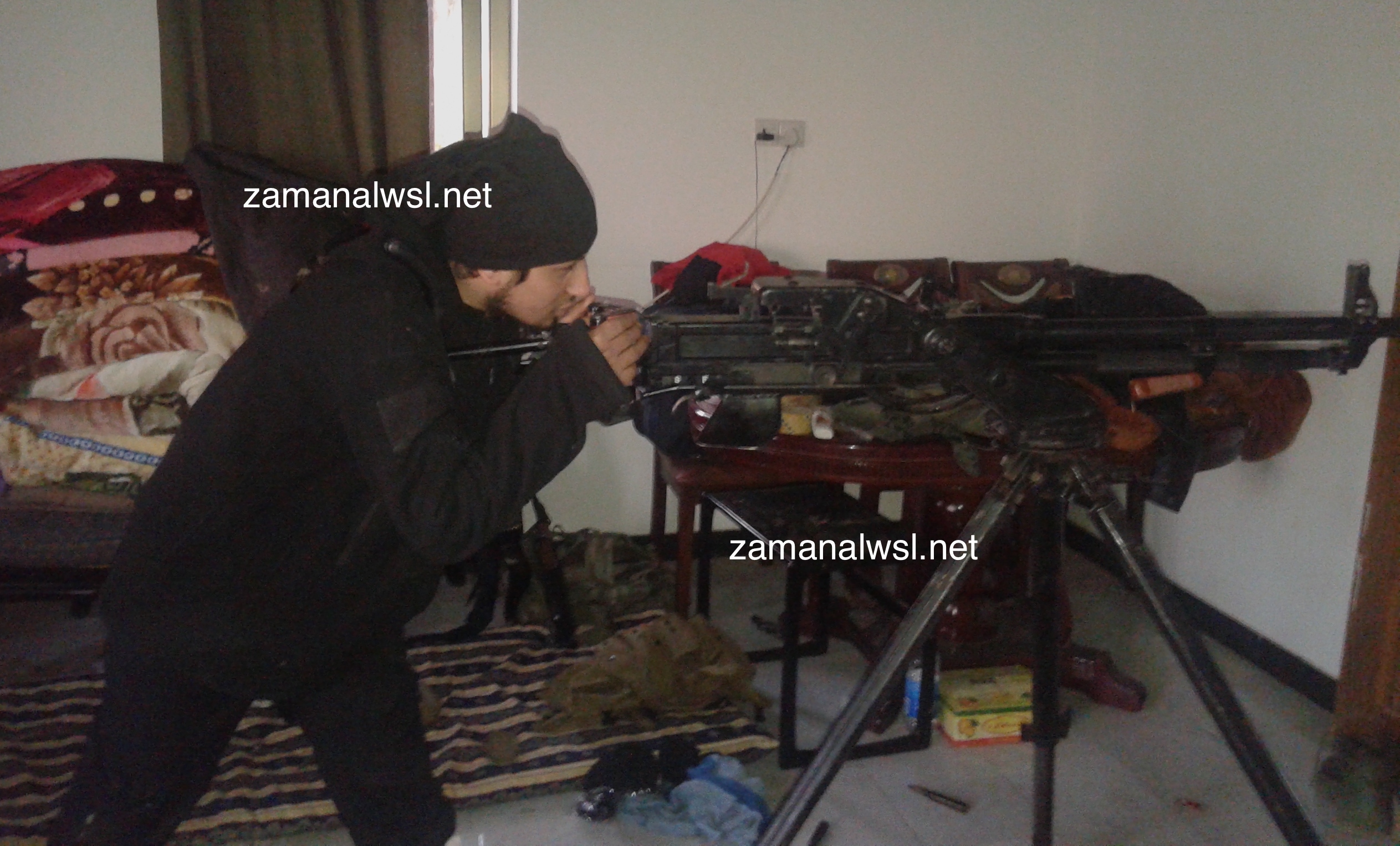(Zaman Al Wasl)- Islamic State has never depended on educated fighters or Shariah scholars when it comes to assigning mosque Imams and Khatibs, new documents revealed.
Documents issued by the Diwan for Proselytization, Foundations (Awqaf) and Mosques in the northern countryside of Raqqa include information about 14 imams and Khatibs working in the mosques of the Saluk area.
One document reveals the categorization of the 14 imams and khatibs where 57% were deemed below average (Five is ‘average’, and three is ‘lacking’) and 43% (six people) were deemed ‘good’ without any of the imams or Khatibs having a score of ‘very good’ or ‘excellent’ remarks.

Another document highlights the educational level of Imams and Khatibs and discusses it in terms of behavior. Six out of the 14 Imams and Khatibs mentioned hold university degrees, but none of the university graduates has a degree in the Islamic Shariah. They all hold degrees in different disciplines (Arabic, History, etc.). Of the remaining imams and Khatibs mentioned, four hold high school or vocational institute diplomas, three only completed the ninth grade, and only one had completed his second year in the Shariah Faculty.
Through a detailed analysis of the documents, Zaman al-Wasl found that Abd al-Karim Sa'adu al-Hamidan, mentioned in the first document, is the same Abu Omar, mentioned in the second document. The same practice was replicated for the remaining 14 imams and Khatibs mentioned.
-General Practice-
Half of the Imams were deemed to be average in their academic achievements. Of these, three hold a 9th grade certificate, two hold high school diplomas, two are university graduates, and one holds a vocational institute certificate.
If we take these documents as a sample representing the reality of those the Islamic State chose to assign as imams and Khatibs in mosques, it demonstrates the Islamic State’s weak efforts with regard to its subjects’ religious well being.
The lack of concern contradicts the image the Islamic State sought to imprint in people’s minds of its institutions giving priority to the Sharia and “teaching people their religion”. The two documents do away with any of the Islamic State’s claims, as imams and Khatibs deemed by the Islamic state as ‘lacking’ or ‘average’ are hardly suitable to advise or enlighten people about simple Sharia issues let alone offer insight into complicated issues where doctrinal differences arise.
Further evidence from other Islamic State documents supports this conclusion. Other documents highlight that employing people with limited or low levels of education may be the Islamic State’s general practice. It may be a practice adopted, supported and promoted by Islamic State leaders for their subordinates to replicate the practice.
In a document entitled, ‘The Statements of Brothers in the Diwan’, (ie the Foundations and Mosques Office in Aleppo), we find that a person whose sole scholastic achievement was listed as “transferring to the seventh grade,” answered the question, “Do you have any projects to suggest now or in the future?” by stating, “Disciplining mosques and the closing musallas (prayer rooms).” The person then added, “following up on the Sufi groups, proselytizing, and reporting because they still practice in the mosques.”
A similar document mentions that Abu Abdullah al-Maqdisi, who holds a 9th grade certificate, held important positions in the Islamic State such as Amir Marea -well-known town in northern Aleppo- (administering the sponsor and what surrounds it) before being transferred to the Foundation and Mosques Office in Aleppo.

According to the document, al-Maqdisi was deemed as a qualified for all these positions based on a one month course on Shariah. The same course was deemed sufficient to qualify Abu Shuhada al-Ansari to hold serious leadership positions such as Amir Souran, Amir Ekhtarin, Administrator for mosques in al-Bab, the biggest town in Aleppo province.

Other documents include similar information among them documents known as the Mujahid Database issued by the Center for Census of Soldiers in Aleppo Province. The documents from the center further corroborate the idea that specific standards play an important role in choosing individuals for religious or Sharia related tasks. The various documents show that a degree, doctrinal training or Sharia education is not the main criteria in assigning persons to particular roles.
It is necessary to refer to a document listing the monthly salaries the imams and Khatibs receive from the Islamic state. An imam and khatib received a monthly salary of 15,000 Syrian Pounds while a khatib received a monthly salary of 6000 Syrian Pounds. These sums amounted to around 75 US Dollars and 30 US Dollar on the day of documents were issued in September 2014.
















Comments About This Article
Please fill the fields below.